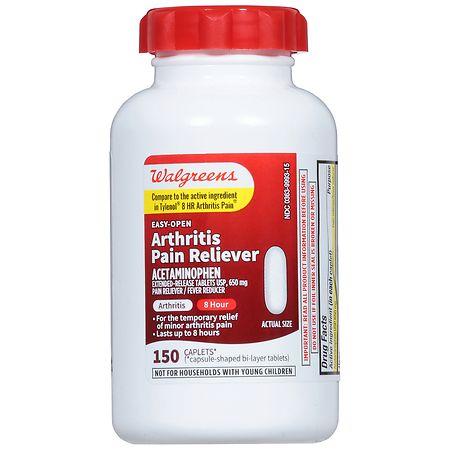Navigating the labyrinth of osteoarthritis-pain/” title=”Coping with Osteoarthritis Pain”>arthritis pain can often feel like embarking on a journey through an ever-changing landscape of discomfort and uncertainty. For those who face the daily challenges posed by this condition, finding the right medication can be akin to discovering a hidden oasis in a desert of pain. As arthritis manifests in various forms and affects individuals uniquely, the quest for effective pain relief requires careful consideration and informed decision-making. In this article, we delve into the intricate world of arthritis medications, unraveling the complexities to guide you toward choices that align with your personal health needs and lifestyle. Whether you’re newly diagnosed or seeking alternatives to your current regimen, join us as we explore the pathways to reclaiming comfort and enhancing your quality of life.
Understanding Different Types of Arthritis and Their Pain Management Needs
Arthritis is a complex condition that encompasses over 100 different types, each with its own unique characteristics and pain management requirements. Osteoarthritis and rheumatoid arthritis are two of the most common forms. Osteoarthritis, often a result of wear and tear, primarily affects the joints, leading to stiffness and pain. On the other hand, rheumatoid arthritis is an autoimmune disorder that causes inflammation in the joints, resulting in swelling and discomfort. Understanding these distinctions is crucial in selecting appropriate medications for pain relief.
When it comes to managing arthritis pain, there are several medication options available, each targeting different aspects of the condition:
- NSAIDs (Nonsteroidal Anti-Inflammatory Drugs): Ideal for reducing inflammation and relieving pain, commonly used for both osteoarthritis and rheumatoid arthritis.
- DMARDs (Disease-Modifying Antirheumatic Drugs): Particularly effective for rheumatoid arthritis, these drugs slow disease progression and can prevent joint damage.
- Analgesics: Focused on pain relief without addressing inflammation, making them suitable for various arthritis types.
- Biologics: Target specific components of the immune system, offering advanced treatment options for rheumatoid arthritis.
Choosing the right medication involves a personalized approach, taking into account the type of arthritis, severity of symptoms, and individual health considerations. Consultation with a healthcare professional is essential to tailor a treatment plan that addresses both pain management and overall well-being.

Exploring Over-the-Counter Options: What Works and What Doesnt
When it comes to managing arthritis pain, the array of over-the-counter (OTC) options can be overwhelming. It’s crucial to discern which medications are effective and which might not deliver the desired relief. Nonsteroidal anti-inflammatory drugs (NSAIDs), such as ibuprofen and naproxen, are often the first line of defense. They work by reducing inflammation, which is a common cause of arthritis pain. However, while these medications are effective for many, they can sometimes lead to gastrointestinal issues, so they should be used with caution, especially for long-term treatment.
On the other hand, acetaminophen is another popular choice for pain relief, though it doesn’t address inflammation. It can be a safer option for those who cannot tolerate NSAIDs, but its efficacy may be limited for more severe pain. Some people explore topical treatments, which can provide targeted relief without systemic side effects. However, not all topical solutions work for everyone, and their effectiveness can vary. Consider trying products containing ingredients like menthol or capsaicin, which have shown promise in alleviating joint pain for some users. When selecting an OTC medication, it’s important to weigh these options carefully and, if needed, consult with a healthcare professional to tailor the choice to your specific needs.

Prescription Medications: Tailoring Treatment to Your Arthritis Type
Understanding that arthritis is not a one-size-fits-all condition is crucial when it comes to medication. Different types of arthritis, such as osteoarthritis, rheumatoid arthritis, and psoriatic arthritis, require tailored approaches to treatment. The right prescription can make a significant difference in managing symptoms effectively. Physicians often consider several factors, including the specific type of arthritis, the severity of symptoms, and the patient’s overall health profile, before recommending a treatment plan. By customizing medication plans, healthcare providers aim to not only alleviate pain but also improve the patient’s quality of life.
When exploring medication options, consider the following:
- Nonsteroidal Anti-Inflammatory Drugs (NSAIDs): These are commonly prescribed for reducing inflammation and relieving pain. They are particularly effective for conditions like osteoarthritis and rheumatoid arthritis.
- Biologics: Used primarily for autoimmune types of arthritis, such as rheumatoid arthritis and ankylosing spondylitis, biologics target specific components of the immune system.
- DMARDs (Disease-Modifying Antirheumatic Drugs): These are essential in slowing down disease progression, especially in rheumatoid arthritis, by suppressing the immune response.
- Corticosteroids: Often used for their powerful anti-inflammatory effects, they can provide quick relief for acute flare-ups.
Each medication class has its benefits and potential side effects, making it vital to work closely with healthcare providers to find the most effective and safe treatment regimen.

Complementary Therapies: Enhancing Relief with Natural Alternatives
For those seeking a holistic approach to managing arthritis pain, complementary therapies offer a range of natural alternatives that can be integrated with conventional treatments. These therapies often focus on enhancing the body’s innate healing abilities, promoting relaxation, and reducing stress, which can all contribute to pain relief. Some popular complementary therapies include:
- Acupuncture: This ancient practice involves the insertion of thin needles into specific points on the body, which can help stimulate the release of endorphins, the body’s natural painkillers.
- Massage Therapy: Regular massages can improve circulation, reduce stiffness, and enhance overall joint function, providing relief from discomfort.
- Herbal Supplements: Natural supplements like turmeric, ginger, and boswellia are known for their anti-inflammatory properties, offering potential relief from arthritis symptoms.
- Mindfulness and Meditation: These practices help in managing pain perception and stress, potentially reducing the overall impact of arthritis pain.
While these therapies can be beneficial, it’s crucial to consult with healthcare professionals to ensure they complement your existing treatment plan effectively. By incorporating these natural alternatives, individuals with arthritis can explore a more comprehensive approach to managing their pain.








